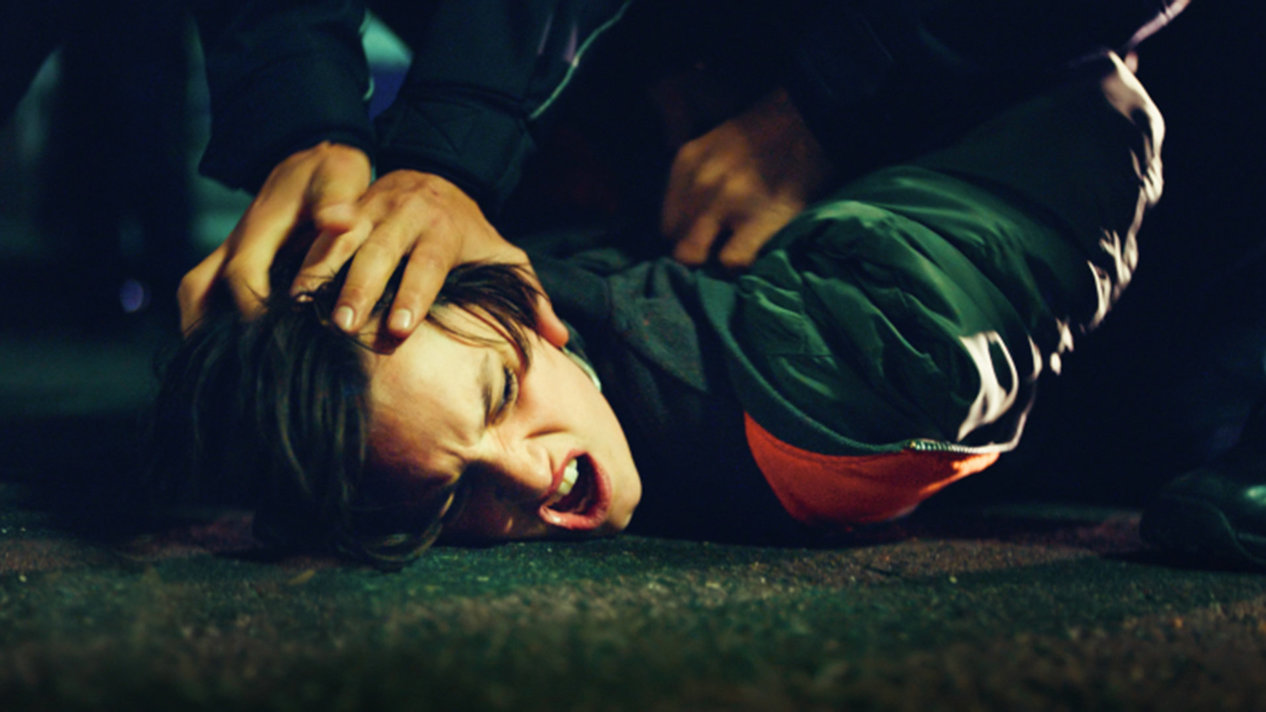Dir: Jakob Lass
The brochure blurb on Tiger Girl makes a big play of Tiger as an anti-capitalist and the film as political. I went into it expecting the film to dig into the conflict between political violence and simple lashing out - a sort of Edukators with fight scenes. Unfortunately these themes are more present in the LFF booklet than they are in the film itself.
Tiger does occasionally mention that she only attacks people with power, only steals from the rich, but this reads like self-justification for her mugging people or lashing out violently. That would be interesting if the film gave any indication of making her confront this hypocrisy, but it fails to engage with this even as Maggy becomes ever more randomly violent, to Tiger’s disapproval.
In Raw, Ella Rumpf showed that she has an interesting, edgy, presence about her. Sadly, Tiger Girl doesn’t demand much of her aside from that. The writing is ultimately shallow and we never learn much about Tiger. Rumpf can still hold the camera with a look, and dominates scenes even when outnumbered, useful in a third act scene when she goes to pay off a big time dealer her friends have fallen in with.
If Rumpf convinces at least with her presence, the same can’t really be said of Maria Dragus, who was so good in Graduation. Dragus always seems like she’s acting, both in the early scenes as she excels in her security course and increasingly so as she drifts ever further into criminality. This is appropriate enough as Tiger goads Maggy into her first acts of rebellion (renaming her ‘Vanilla’), but the sense of both Dragus and Maggy playing a part doesn’t go away. If this is supposed to suggest that Maggy is looking for a sense of belonging and, not finding it, trying to play the role, that’s another theme the screenplay never makes convincing.
The screenplay drags out its various strands in thoroughly expected ways, trying to play off the irony of Maggy’s infatuation with Tiger’s way of life set against her initial ambition to be a cop. It’s entirely obvious where this is going to end up, just as it is obvious how Tiger and Maggy’s friendship will fracture.
Jakob Lass directs competently, if not particularly interestingly. There are a handful of striking images here (the jewelled masks in the still above, for instance) but while the violence is reasonably well shot it seldom has much charge to it. Had the film given more emphasis to the politics we’re apparently supposed to take from it then the violence might have had an interesting moral ambiguity about it, but without that dimension, it just becomes a deadening series of confrontations.
On the whole, this is a disappointing film. It wastes two actors with obvious raw talent and a screenplay that has some ideas, but neglects to explore them in any way that would either inform the characters or prove thought provoking for viewers.
★★
★★



No comments:
Post a Comment